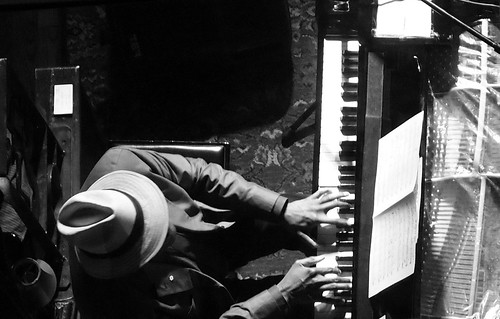Most of us don’t realize that we spend a bunch of time avoiding a familiar “Brain Pain”.
Just below our radar, but deeply connected with our emotions is an unsettling sense that something isn’t right.
That’s because it isn’t. Though it’s a normal sensation it’s not well-received.
We order and reorder things to avoid this feeling. But, it persists. And, it’ll make us do the strangest things.
Simply put: This “brain pain” happens when we try to hold two or more conflicting ideas together.
It’s officially called cognitive dissonance.
Unidentified, you don’t like it either.
But, in fact most of life and love is full of paradox and contradictions. All the great thinkers and spiritual masters speak of it.
The big problem?
Our cognitions don’t live together in a good jive and comfortable harmony. Our ideas, beliefs, values or emotional reactions have pointy and mismatched edges and we keep wanting things to piece together nicely like a glossy jigsaw puzzle.
Instead of feeling and living with dissonance, we try to avoid it or reduce it. Anything from changing our beliefs to be in keeping with the situation (to make it bearable), to reducing our regret through irrational justification, to reaffirming our bias even if a logical reason is absent. We are very irrational creatures and the more we think we are NOT the more irrational it is.
(It’s dissonant to be a partially rational creature, see?)
In wanting everything to “make sense” we pick fiction and live by figments instead.
You do it. I do it.
What’s worse?
The social pressure to relieve this sort of brain pain will blast toward us from everywhere. Maybe nowhere more powerfully than from our leaders. People in the pulpit, or the podium, power players in the board room or on news and media outlets they let the zingers fly that force you to inconsistently choice a faulty form of consistency. On cable television and radio of all stripes it’s a full-blown-plauge.
Everyone will try to sway you to give up the dissonance and see it their way (which they call “the right way”). It makes them feel better. But, the dissonance is part of reality just like it is part of jazz music. Not every note sounds just right or fits together seamlessly. It’s off-pitch and off-tempo. It’s very hard to predict.
How tricky! How disconcerting.
It is a mark of maturity to accept that reality is chock-a-block with inconsistency and incongruence. (That’s worth reading again.)
Though it can be unnerving, an abiding peace can yet remain in what seems a spongy place. This place is a good and useful tension of balance. It’s very hard to find and even harder to keep.
So, what about you?
Think about the things that create the discomforting feeling of dissonance for you.
• What are they? (relationships, finances, politics, tragedy, redemption?) Narrow it down to one or two big ones, for now.
• Have you been dodging logic or minimizing regret for the fantasy of consonance because you want to avoid the pain (and reality) of dissonance? Let’s be honest.
What could you hold in dissonance and balance that you haven’t been?
(Thank you for reading today. I would love if if you would share this post. Also great? If you would sign up for the next post in the sidebar.)
xo
-Lisa




